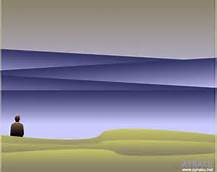 Scripture Text: John 12: 20-33
Scripture Text: John 12: 20-33
20Now among those who went up to worship at the festival were some Greeks. 21They came to Philip, who was from Bethsaida in Galilee, and said to him, “Sir, we wish to see Jesus.” 22Philip went and told Andrew; then Andrew and Philip went and told Jesus. 23Jesus answered them, “The hour has come for the Son of Man to be glorified. 24Very truly, I tell you, unless a grain of wheat falls into the earth and dies, it remains just a single grain; but if it dies, it bears much fruit. 25Those who love their life lose it, and those who hate their life in this world will keep it for eternal life. 26Whoever serves me must follow me, and where I am, there will my servant be also. Whoever serves me, the Father will honor. 27“Now my soul is troubled. And what should I say—‘Father, save me from this hour’? No, it is for this reason that I have come to this hour. 28Father, glorify your name.” Then a voice came from heaven, “I have glorified it, and I will glorify it again.” 29The crowd standing there heard it and said that it was thunder. Others said, “An angel has spoken to him.” 30Jesus answered, “This voice has come for your sake, not for mine. 31Now is the judgment of this world; now the ruler of this world will be driven out. 32And I, when I am lifted up from the earth, will draw all people to myself.” 33He said this to indicate the kind of death he was to die.
In some Native American cultures, a vision quest is a rite of passage, a time of coming of age. In many tribes, a vision quest requires that a person spend at least four to five days secluded in nature, in the wilderness, so to speak. During that time, the person participates in what is characterized as deep spiritual communion. It is a time of transition, perhaps of “finding oneself”. It is a time of finding one’s direction, a turning toward who one is supposed to be.
We know this Scripture passage well. It is the point where Jesus metaphorically, if not literally, turns toward the Cross. It is the point where Jesus begins walking and beckons others to follow, to let go of all to which they are holding and follow. But I think I have often sort of skipped over the first two verses. What an odd interplay. Greeks, outsiders, come to worship at the festival. Now I guess you could assume that they were Jewish if they were coming to worship. But they are still not part of Jesus’ inner circle. And they head right up to Philip. The passage makes it clear that Philip, too, was on some level an “outsider”. He was from Bethsaida, the “house of fishing”, the place on the Galilean Lake where Jesus had probably called him to follow, along with some of the other disciples. And to Philip, the Greek questors make their request: “We wish to see Jesus.”
On the surface, it is a simple enough request. But when you consider that they were Greeks, accustomed to knowledge and learning, probably used to the more pragmatic way of looking at things, the notion of “seeing” Jesus is interesting. And there is no answer given. Jesus goes right into laying out what is about to happen. Maybe the idea is that wishing to see is a way of seeing, that desiring to be close to Jesus brings one closer, that one’s awakening to Jesus’ Passion is what brings one into it.
What if this season of Lent became our vision quest? What if here in the wilderness that leads to the Cross, where our plans go awry and we are at the mercy of circumstances that we cannot seem to control to our liking, we see life, we see Jesus, we see ourselves in a different way? What would it mean here, in a place to which we are unaccustomed, we were to ask to see Jesus—not just assume that Jesus is there, not just walk through Passion and Holy Week the way we always have, but to truly, in the deepest part of our being, desire to see Jesus, to know Jesus (not the Jesus that picks us up, not the Jesus who we like to call our brother or our friend or whatever word implies a close friendship, but the Jesus who has turned and walked away toward the Cross and now beckons us to follow.)? Now is the time. Now is the time for your own vision quest.
Every question in life is an invitation to live with a touch more depth, a breath more meaning. (Joan Chittister)
FOR TODAY: Go on a vision quest. Learn to see anew. Wish, in the deepest part of your being, to see Jesus—not the one that you’ve been so comfortable seeing, but the one who beckons to you to follow.
Grace and Peace,
Shelli




